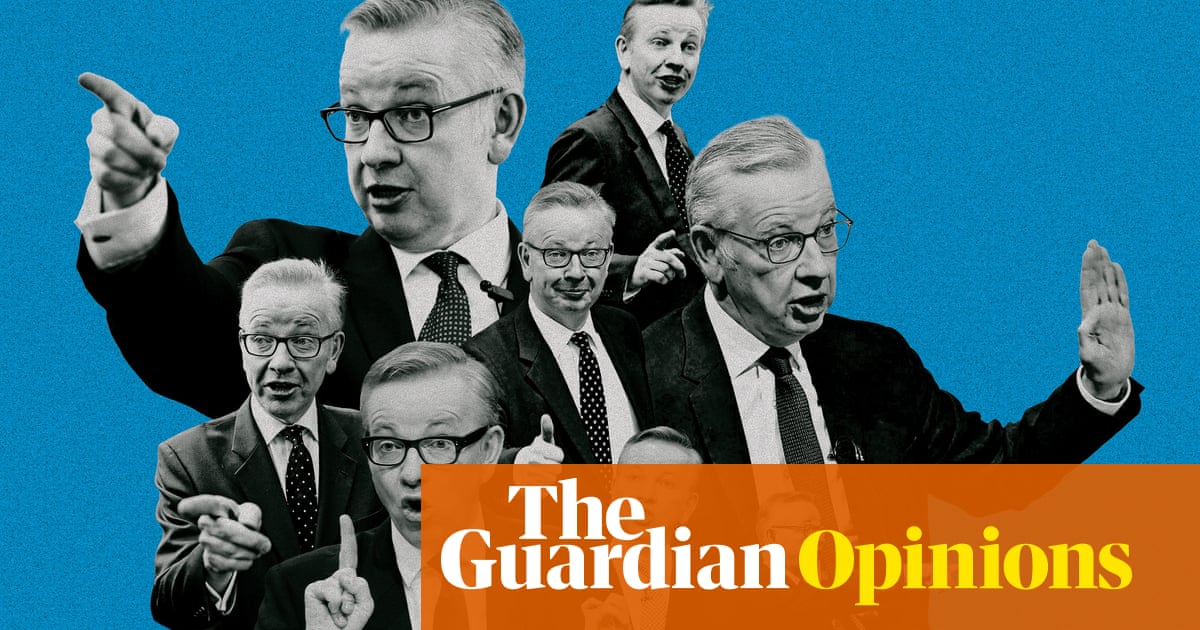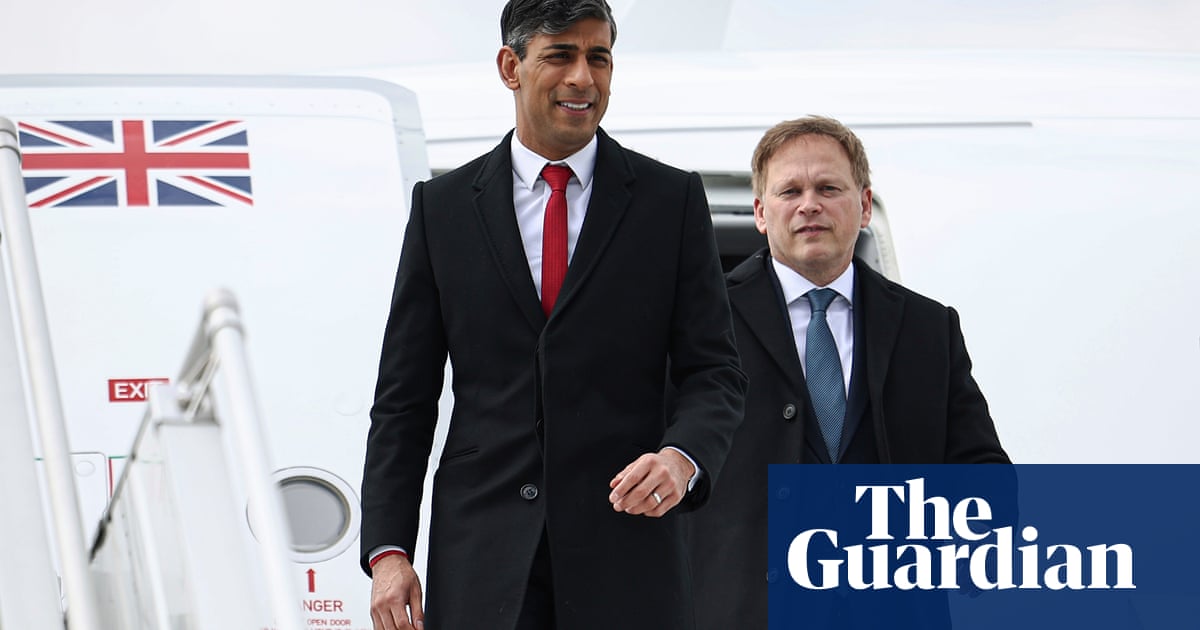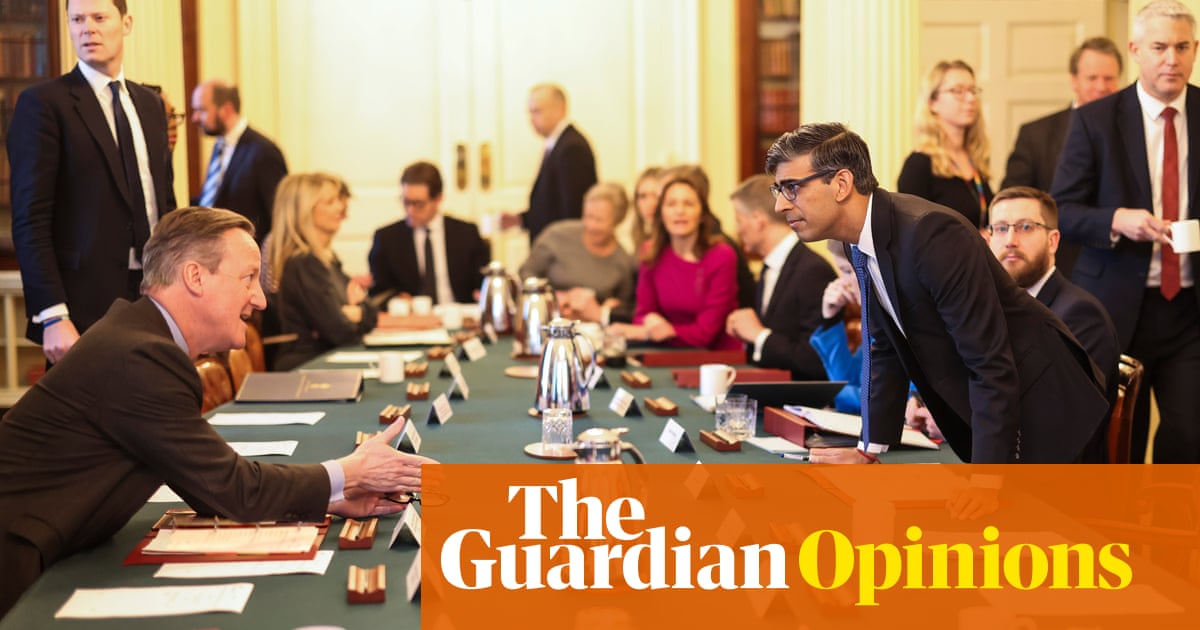Anderson and Braverman shout loudest, but one man has led the toxification of the Tories: Michael Gove | Andy Beckett


On the ever more common journey from the centre right to the far right, there are two contrasting routes conservative parties can follow. One is to welcome in demagogues such as Lee Anderson and Suella Braverman, and to borrow or indulge their extreme ideas, or only half-condemn them – thus publicising them further – in the hope that this cynical process will attract a wider range of reactionary voters. In countries widely thought of as nostalgic and disillusioned, such as contemporary Britain, it is assumed that there are a lot of these voters, however much the Tories’ terrible poll ratings suggest the contrary.
For a week now, the Conservatives’ contortions and divisions over Anderson’s toxic conspiracy theories have demonstrated the political risks of the demagogue approach. However, there is another way for rightwing parties to radicalise that is more subtle, less controversial and often more successful. It involves more mainstream, less abrasive conservative politicians – people generally regarded and presented by the media as reasonable – exploring and promoting hard-right ideas and turning them into policies, while insisting that nothing harsh or reckless is going on.
Theresa May’s weaponising of English nationalism, Boris Johnson’s constant launching of culture wars and David Cameron’s drastic shrinking of the state, continued under Rishi Sunak and likely to be taken even further at next week’s budget, are all examples of Tory premiers normalising stances once largely confined to the rightwing fringes. The party has always had an aggressive edge – defending privilege requires it – but since 2010 it has dumped its more inclusive and conciliatory traditions with a speed and thoroughness quite startling for anyone who previously believed in Conservatism’s essential moderation.
The politician who arguably embodies this transformation more than any of the above is a Tory minister with a rare reputation for competence and civility: Michael Gove.
Uniquely, except for two interruptions of less than a year, he has been a cabinet member continuously since 2010. Education, Brexit, levelling up, housing, farming, the environment, prisons, PPE contracts, party discipline, relations between the central and devolved governments, the coordination of Whitehall: Gove has been involved in all these at a high level.
Sometimes, his influence has been decisive, as anyone who has dealings with one of England’s ever more regimented, Gove-reformed state schools will know. And sometimes his activities have been secretive and open to question. This week, he was placed under investigation by the parliamentary commissioner for standards, shortly after this newspaper revealed that he had not registered VIP hospitality he had enjoyed at a football match with a Conservative donor, David Meller, whom a year earlier Gove had helped secure PPE contracts worth £164m.
As well as this ubiquity in shaping and carrying out policy, which has often been assisted by the dire quality of other Tory ministers, Gove has also helped give the governments since 2010 a particular tone: utterly tribal and sure of themselves, contemptuous of enemies, and almost always avoiding compromise in favour of doubling down. The fact that Gove has attacked his targets – such as “the blob” of lefties that supposedly controls education, and “experts” who doubt Brexit – in a voice that is calm and elaborately courteous has effectively disguised the extremity of his positions.
Yet in his writing the resemblance of some his preoccupations to those of the far right has been harder to miss. Like Johnson, Gove was a scaremongering rightwing journalist before he became a politician and has sometimes combined the two careers since. “The West faces a challenge … as profound, in its way, as the threat posed by fascism and communism,” he wrote in Celsius 7/7, a book he published the year after becoming an MP. “Islamist advance across the globe … co-opting governments, subverting states that seem ripe for overwhelming …” Except for the slightly fancy language, this could be Lee Anderson talking.
As a minister, Gove has often acted aggressively against what he sees as Muslim threats to “fundamental British values”. His hard-right instincts have also been apparent in his alliances. He employed Dominic Cummings as a special adviser from 2007 to 2014. Gove was the first Briton to interview President Donald Trump, and posed for a grinning, thumbs-up photo with him afterwards. Last year Gove spoke at the ultra-reactionary National Conservatism conference in London. He has a close, if volatile, political relationship with Kemi Badenoch, the confrontational business secretary, who is widely seen as the next Tory leader.
Occasionally, he has threatened to turn into a different kind of politician. As a minister, he has removed a Conservative curb on how many books inmates can have in prison, promised to ban some pesticides, promoted more environmentally conscious agriculture and promised to outlaw no-fault evictions. Yet such initiatives, while seen by some as evidence that he is open-minded or even has a liberal side, have often been more rhetorical than real. Last year, the supposedly green Gove tried to loosen restrictions on pollution in rivers. This week, it was reported that his anti-eviction legislation, already delayed, may be “watered down” after pressure from Tory MPs who are landlords.
In truth, Gove’s achievements, like those of the governments he has served, have diminished since the mid-2010s. For all his energy as a minister, schemer, networker and political thinker, he is confined by the narrowing of his party’s credibility and popularity – and by the limits of hard-right Conservatism itself: a creed with diverse proponents but an electoral dependency on angry old white men, and social and economic ideas that have hardly changed since the 1980s, when he joined the party. While he likes to cite unexpected, non-Tory figures such as the Italian Marxist Antonio Gramsci and President Franklin D Roosevelt, Gove remains strongly loyal to hierarchy, tradition and the free market.
If the Tories go into opposition, he will probably still be a public presence, giving fluent, upbeat interviews about the future of Conservatism to all the journalists he knows, while offstage he flits between the party machine and the rightwing thinktanks. But for many who have to live in the country that austerity and Brexit built, his brand of Toryism will probably be remembered for two things: fanaticism and misplaced confidence. To adapt a quote from his hero, Winston Churchill: never in the field of British politics was so much damage done to so many by so few.
Source link




